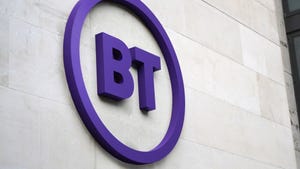The UK Government has unveiled a new consultation which will explore how it can instruct Ofcom to snap the whip, making sure telcos get their gears churning to meet connectivity targets.
February 15, 2019

The UK Government has unveiled a new consultation which will explore how it can encourage Ofcom to snap the whip, making sure telcos get their gears churning to meet connectivity targets.
Over the next decade, if the government manages to create a suitable amount of urgency across the telco industry, there will certainly be some progress made. The objectives currently set out are nationwide full fibre broadband coverage by 2033, while also increasing geographic mobile coverage to 95% of the UK by 2022.
Although this sounds very official, this consultation is more of a temperature check from the government. It’s asking the industry to give it feedback on its Statement of Strategic Priorities to reinforce its position and create a framework for Ofcom to work towards, ensuring the aims and objectives of the government and the regulator are on the same page.
In this consultation, the government is presenting its Statement of Strategic Priorities for a legally required 40-day consultation, which will validate and justify the aims, therefore providing a more stable foundation to bring Ofcom’s work in-line with government ambitions. This is a process which is required in other utility verticals and brings the telco industry more in-line with the stricter regulatory scrutiny which is placed on segments such as water and energy.
Aside from meeting the connectivity and coverage ambitions, the consultation will also look at how ‘loyalty penalties’, the price-creep which is placed on contract renewals, can be tackled. The telco industry is one which is geared towards customer acquisition, though many would like to see loyalty rewarded, instead of picking up the slack created by offers to lure customers away from competitors.
“As the UK’s telecoms regulator, Ofcom has a critical role in realising our shared connectivity aspirations for the UK,” said Secretary of State, Jeremy Wright. “As well as ensuring the necessary improvements to broadband and mobile services, consumers must also be protected. I urge Ofcom to tackle harmful business practices and remove barriers to switching.”
The ‘loyalty penalty’ is a highly emotive mission from bureaucrats and consumer champions to stop an age-old practise of the telcos, which is perhaps underhanded. It is effectively taking advantage of those who are not savvy-enough to search for a new deal, or those who might innocently and naively presume loyalty would be rewarded. Unfortunately, this is not the case in the telco space, an industry which has a woeful track record and outlook on customer experience and services.
In terms of improving mobile coverage, the up-coming Ofcom 700 MHz auction has caught the attention of the government. The auction will aim to sell off 80 MHz in the 700 MHz band, spectrum which is well suited for providing mobile coverage over wide areas and indoors. Ofcom is currently clearing this band of transmissions for Digital Terrestrial Television (DTT) and by wireless microphones used in the entertainment industry, though the plans are to have the spectrum free for mobile use by summer 2020.
Elsewhere in the consultation, rural roaming will be covered. Again, this ties back to empowering the consumer with greater connectivity and coverage, tackling the not-spots across the UK. Despite each of the telcos claiming progress in improving coverage, there are still plenty of not-spots across the UK where consumers only have the choice of one operator. Future proposals would aim to improve roaming agreements, to offer greater choice of providers to the consumer.
Finally, the consultation will ask for opinions on the current regulatory landscape. Central to this aspect of the investigation will be the suitability of rules and regulations to ensure the UK attracts investment.
While this might seem like bureaucracy for the sake of bureaucracy, it is a democratic nation ensuring all the boxes are ticked. The government has ambitions and objectives, though it is seeking validation from the community, before presenting a mandate to Ofcom to ensure it is regulating the industry in the way the government feels is most beneficial for society on the whole.
About the Author(s)
You May Also Like








.png?width=300&auto=webp&quality=80&disable=upscale)


_1.jpg?width=300&auto=webp&quality=80&disable=upscale)


.png?width=800&auto=webp&quality=80&disable=upscale)